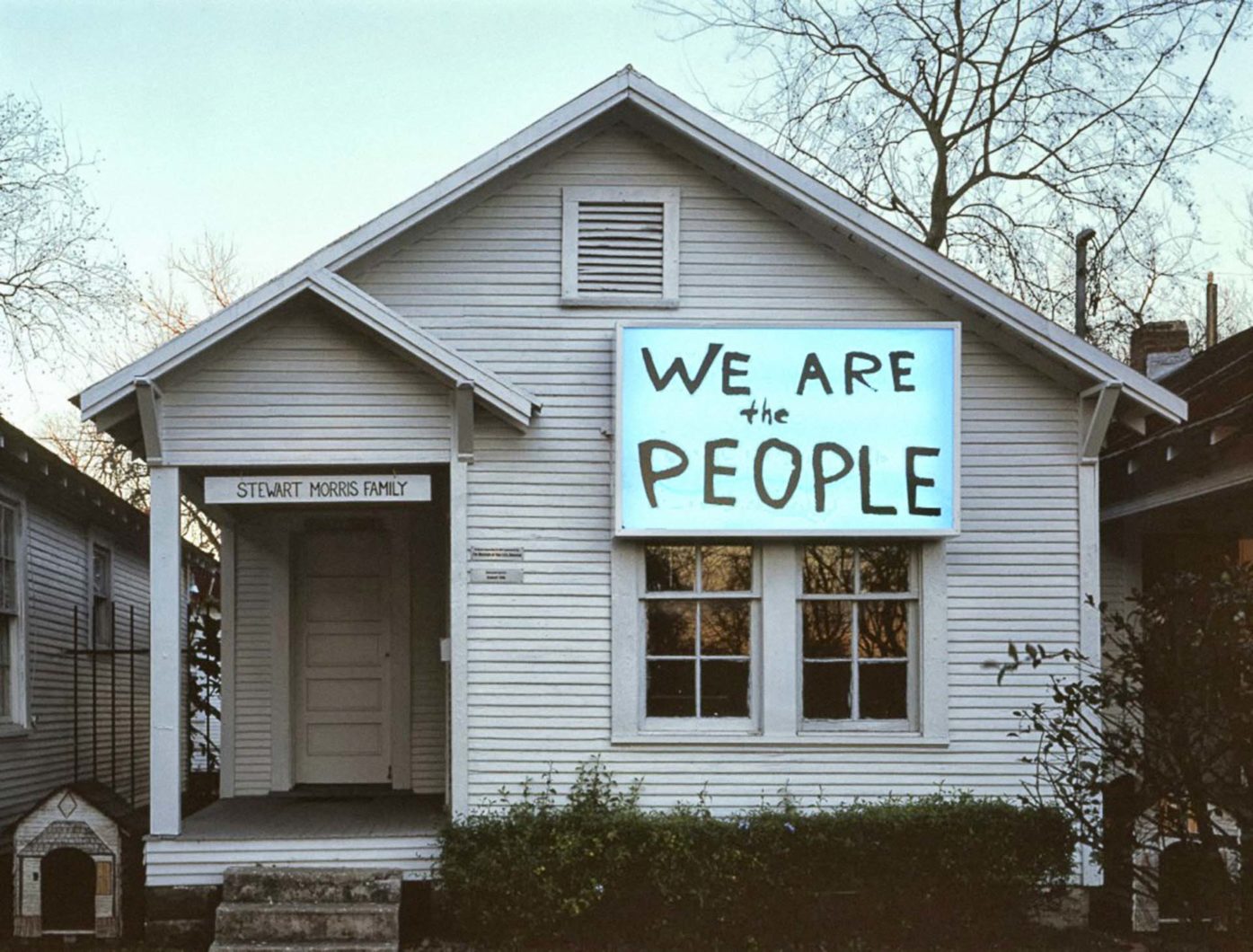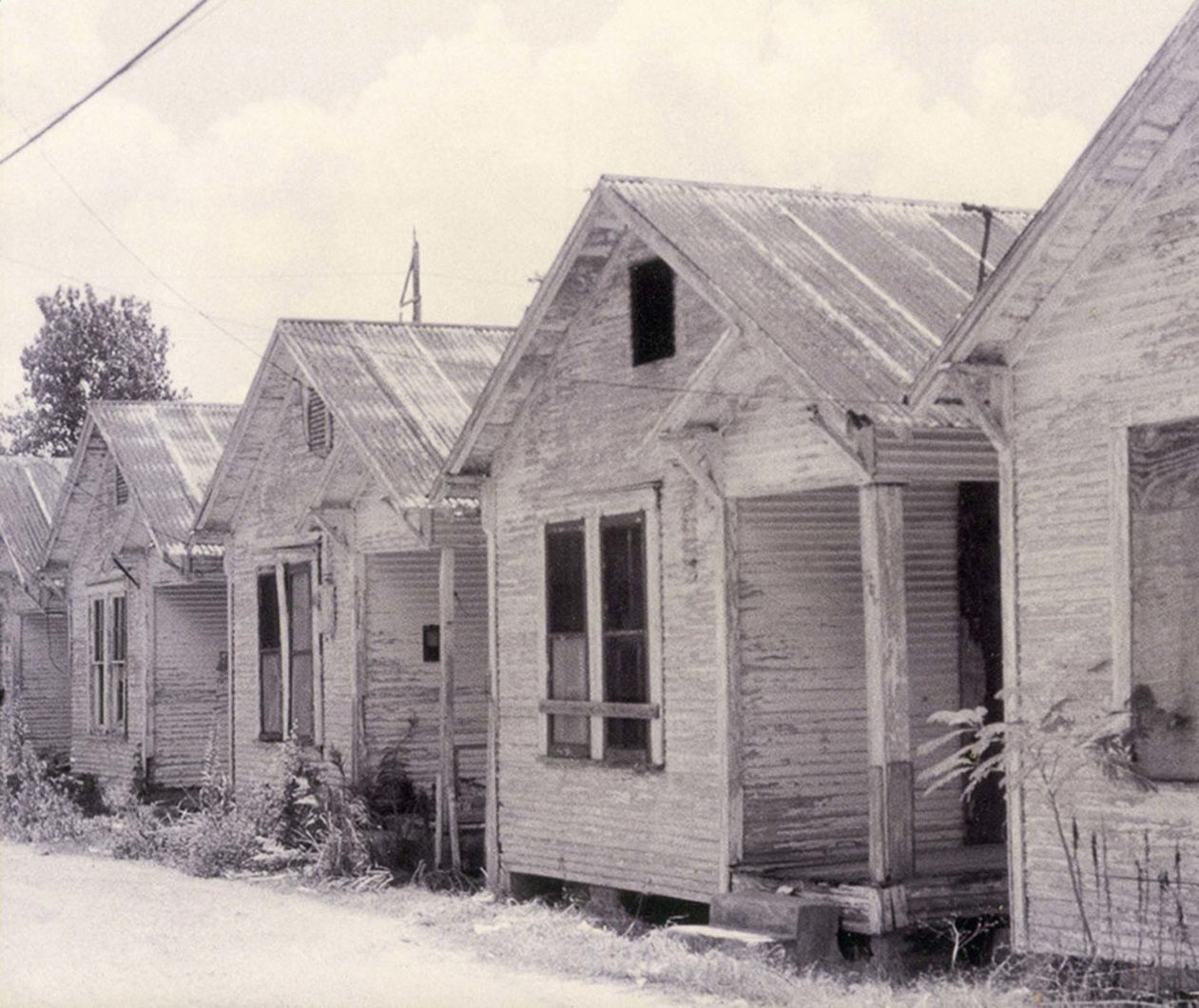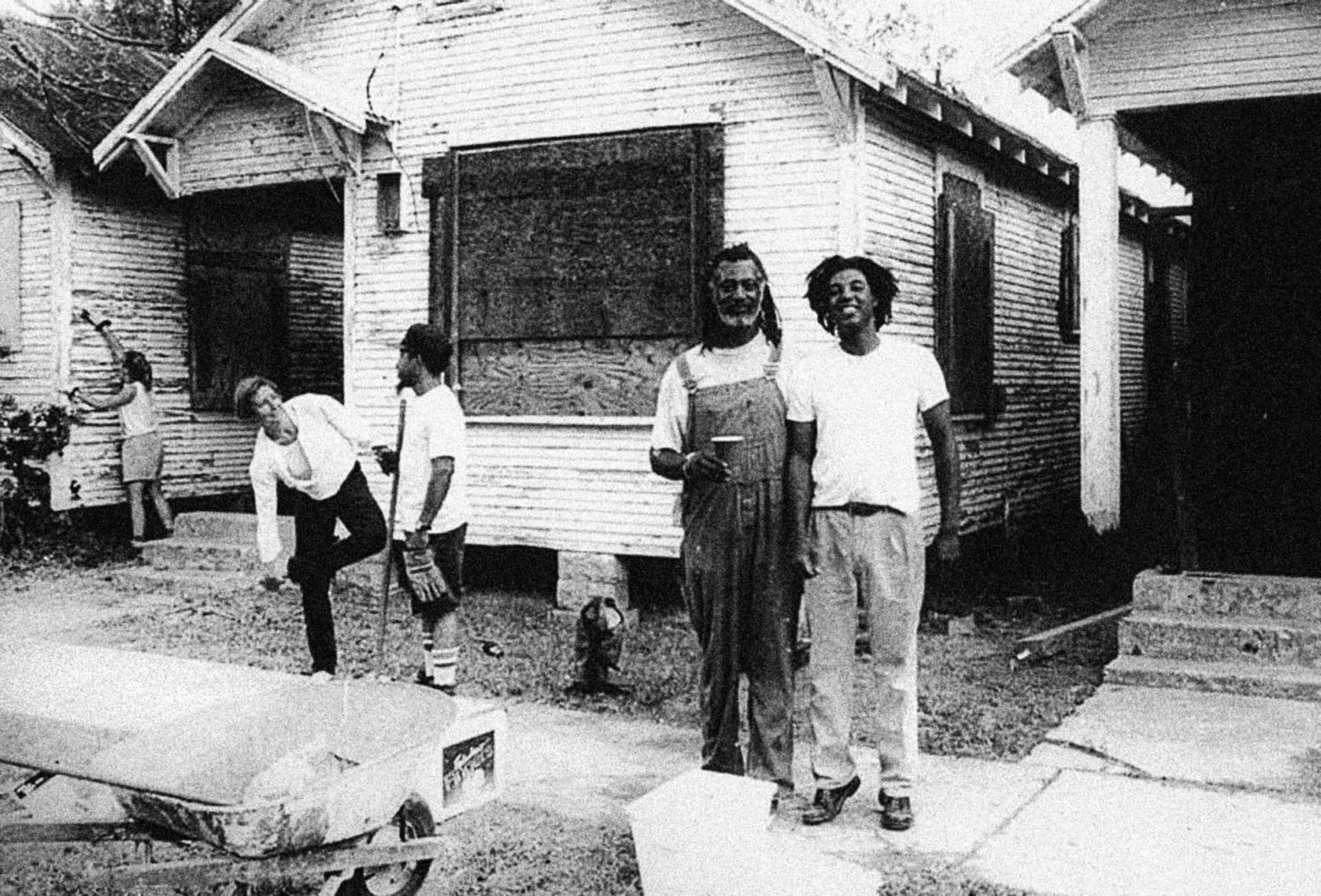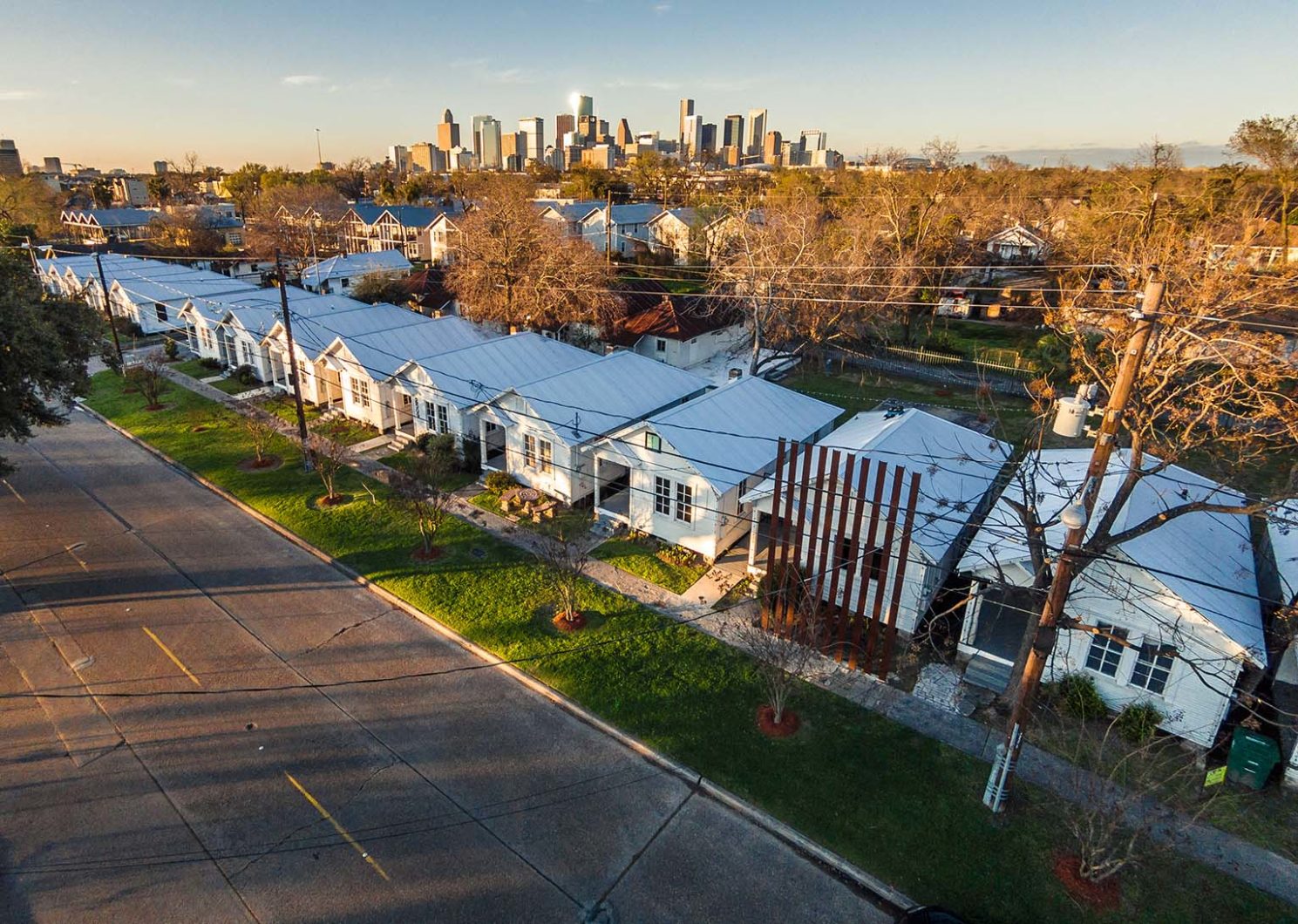Project Row Houses
An art organisation providing affordable housing to low-income residents to foster community building, social safety nets, to avoid displacement and stop gentrification




Initiator(s)
Rick Lowe, James Bettison, Bert Long, Jesse Lott, Floyd Newsum, Bert Samples, George Smith
Description
Artists and community activists transform the social environment in one of Houston's oldest African American neighborhood - which lacks of affordable housing - providing to low-income residents refurbished houses. Taking into account the historical and the architectural richness of the neighbourhood, the project includes six blocks of housing, 49 properties,12 artist exhibitions and residency spaces, 7 houses for young mothers, office spaces, a community gallery, a park, and commercial spaces. In 2003, after noticing the rise of property prices in the area, Project Row Houses (PRH) founded a separate Community Development Corporation (CDC) to preserve community and equal opportunity for low to moderate income residents to live in Third Ward.
Context
Originating in West Africa, the shotgun house style made its way to the United States through the slave trade, first via the Caribbean and up to New Orleans, and then throughout the nation. Houston was established in 1837 and split up into four wards. Third Ward was designated as the Southeast ward. Originally settled by former slaves who relocated to the region following the Civil War, it developed into a significant hub for African American-owned enterprises and a thriving centre for Black culture, which persisted into the 1950s and 1970s. The majority of the Third Ward's shotgun homes were abandoned in the 1990s. Black artists and their culture were also underrepresented in the art world at the time.
How to use it
The PRH concept for art and social involvement is applicable to many areas worldwide. Maintain a commitment to local culture and history, and collaborate with residents to directly address community-related issues.
Goals
The project increases affordable housing opportunities for low income residents by expanding affordable rental conditions. It revitalizes the neighbourhood developing a design that considers the existing architecture in the community.
PRH encourages artists to extend their practice outside the studio into the social context. Through mentorship, commission-based practices, and public art opportunities, these artists foster a positive, creative environment that enhances the quality of life and honours culture and history. It raises social responsibility in Houston’s Third Ward through art in daily life, quality education with multigenerational exchange and architectural preservation. Finally, the project is a catalyst for economic development by fostering cooperation between residents to reshape the community identity. Through the creation of long-term possibilities for artists, young moms, small enterprises, and inhabitants of Third Ward, their programs aim to foster independent change agents.
Beneficial outcomes
The project provides affordable housing for people in the community. Through the Young Mothers Program provides up to two years of subsidized housing, counseling on parenting skills to mothers in need. PRH offers free tutoring to students who need assistance in their studies as well as a learning service project to provide hands-on experiences beyond the classroom. It hosts a community market to sustain local creatives and an incubator program that provide space, time and mentorship to early career artists and individuals.
Location
United States
Field
Housing rights, Gentrification
Strategy
Double ontology, Extraterritorial reciprocity, deactivate (Art’s aesthetic function)
Users
People in Houston’s Third Ward District, young mothers, children, youth, artists, activists, architects, designers, visitors, art lovers, tourists.
Maintained by
Project Rowe Houses Community Development Corporation, The Brown Foundation, Bruner Foundation Inc., Chevron, Houston Endowment Inc., Joan Hohlt & Roger Wich Foundation, The Kinder Foundation, The Kresge Foundation, The Lewis Family Foundation, Marc Melcher, John P. McGovern Foundation, National Endowment for the Arts, Nightingale Code Foundation, Betty Pecore and Howard Hilliard, Picnic, Robert Rauschenberg Foundation, The Simmons Foundation Inc., Surdna Foundation, Texas Commission on the Arts, Susan Vaughan Foundation, City of Houston, Houston Arts Alliance
Duration
1994 - ongoing
Coefficient of Arte Util
78
Category
Scientific
Pedagogical
Politics
Urban Development
Economy
Environment
Social
Links
http://projectrowhouses.org/
http://www.rowhousecdc.org/
http://www.huffingtonpost.com/gregory-sh...






